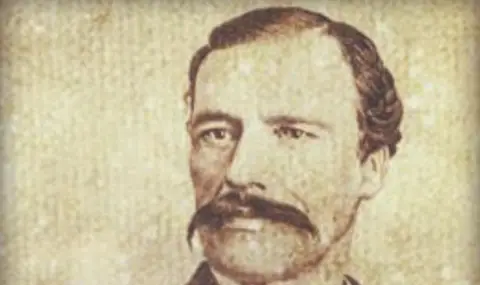On November 25, 1861 Georgi Rakovski prepares in Belgrade a second, more complete version of his new plan for the liberation of Bulgaria, providing for the creation of "one well-armed regiment of 1,000 well-chosen and battle-blooded men with two forest cannons, with 4 cannons and 4 pipes and with two surgeons, and a hundred horsemen". The regiment must "enter secretly through Kniazevac and the Balkan Ridge and march along the Balkan straight to Tarnovo, giving the signal everywhere by a proclamation or some other sign to rise, cut the telegraphs, and close the roads to the mails...".
Georgi Rakovski is a national revolutionary, the first ideologist of the national revolutionary movement, writer, publicist, ethnographer. He was born in February 1821. in Kotel. In 1861 compiles "Plan for the Liberation of Bulgaria" and "Statute for a Provisional Bulgarian Authority in Belgrade". The plan advocates the idea of a general uprising of all Bulgarians, regardless of their social status, and not through reforms or with the help of external forces (its guiding principle is: "Our freedom depends on us").
According to the plan, secret committees must be created in Bulgaria to mobilize the population for mass participation in the uprising. The main weakness of the plan is the conviction that the people are prepared for an uprising and that its armed core must be the emigrant circles. Therefore, he organized and led in Belgrade the First Bulgarian Legion (1862) and worked to create a union of the Balkan Christian peoples to fight against Turkish slavery (1863), founded among the Bulgarian emigrants a revolutionary organization "Supreme People's Bulgarian Secret Civil superiors" (1866), developed the "Provisional Law for the People's Forest Troops for the Summer of 1867". Until the end of his life, he worked to implement his revolutionary plans. He died on October 9, 1867. from tuberculosis in the Mustakovi brothers' villa near Bucharest.
In 1885 his bones were transferred to Bulgaria in the Sofia Cathedral "St. Sunday". In 1942 were transferred to the Kotel, and in 1981 - in the Rakovsky Mausoleum and the Museum of the Revivalists in the same city.
Rakovski's literary work is inextricably linked to his revolutionary activity - both his journalistic, literary and historical-ethnographic scientific works.
